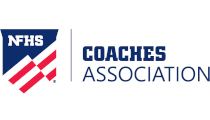By David Hoch
Recently, we interviewed five candidates for one of our head varsity coaching positions, and it was alarming how poorly they did as a group. During the interviews, the candidates committed numerous faux pas and gave many clueless answers. It made me wonder if they had been interviewed before, but, of course, they had to have been. However, they sure didn’t demonstrate that they had.
My mind actually wandered while listening to the coaches’ answers, and I contemplated if I should stop them and offer:
- Would you like to start this interview over again?
- Would you like to rethink and restate that answer?
- Would you please take another approach with this opportunity?
Having a great record or having previous coaching experience isn’t enough. In order to ace an interview for a coaching position, a candidate has to be ready to win this phase of competition. Just like for a game, a coach has to prepare. The following are some things to think about prior to walking into that interview.
- Know something about the school. For example, my former school has an excellent academic and athletic reputation. Most schools are also distinctive in some manner. It is important for the candidate to understand what makes a school click, because most of the questions are going to center around the distinctive requirements and features of that school.
- Don’t say anything negative about the former coach. One of the candidates for our position did just that. He obviously didn’t know that I thought very highly of our former coach. This is not a good way to create a favorable first impression. If you would like to take a different approach to the former coaching philosophy, that should come out in the interview. However, don’t take shots at the previous coach.
- While you don’t want memorized and stilted answers, do be prepared for common questions. When I asked one of the candidates to describe his philosophy of coaching, he struggled greatly. It was as if he had never been asked this question before. Surely this is one question for which you should prepared.
- When answering a question, do not give more of an answer than is needed. Some candidates didn’t know when to stop and just kept talking. In doing so, they presented some information that actually hurt their candidacy instead of helping. One candidate referred several times to a limitation that he felt that he had. If a question is asked such as, “Name one area in which you can improve,” obviously you will have to supply an honest answer. However, don’t volunteer this information unless it is specifically asked. Also, try to put a positive spin to it.
- Normally, our first question is, “Please take 2-3 minutes and tell me something about yourself.” This is done to allow the candidate a chance to relax and to reduce the possibility of becoming flustered at the beginning of the interview. Some of the answers and the directions that the candidates took were very revealing. All candidates would be better served by having prepared something that will actually enhance their candidacy and yet not reveal damaging or questionable information.
- Understand that there is a fine line between confidence and arrogance. One of the questions I asked was, “Name some of the qualities that good coaches might possess.” The follow up question was, “OK, which of these qualities do you think that you possess?” I was utterly amazed when one candidate quickly and without hesitation responded with, “All of them.” Even if it is true, the answer comes across poorly. Don’t we all have things that we can work on and improve upon? Nobody is perfect.
- From one candidate, I repeatedly heard what getting this position would mean to him and to his future goals. While I can understand his eagerness to secure the position, it would be much better if the answers had centered on what he could do for our athletes and our program. This should be very easy for a candidate to understand, because as the athletic director this is what I am concerned about the most. To be successful, a candidate must impress the interviewer.
- More than once, the candidates continued to answer a question which they truthfully didn’t totally understand. If you don’t understand a question, ask the person conducting the interview to repeat or to rephrase it. There is nothing wrong with asking for a clarification. Your success does depend upon answering questions to the best of your ability and this is certainly compromised if you don’t even understand the question.
- There is also nothing wrong with hesitating for a few seconds to gather your thoughts. Too many of the candidates were fearful of silence. A few quiet seconds spent formulating an answer are much better than a quick, poorly constructed one.
- Bring along written copies of your coaching philosophy, off-season conditioning program, summer workout program and playbook. These are other ways of greatly impressing the interviewer. At the appropriate point in the interview, for example, after answering a related question, you can offer a copy which supports your answer. This is an excellent way to show that you have prepared not only for the interview, but that you have a well-thought-out philosophy and approach to coaching. Not one of the five candidates did this.
- Be prepared to answer hypothetical questions. For example, what action would you take if one of your players (or your star athlete) was at a weekend party in which alcoholic beverages were present? The chances are that the reason the question is being asked is that there was a similar problem in the past at the school and this is a legitimate concern. Take a minute to gather your thoughts, because even though this may be hypothetical, your answer will be considered very seriously.
- In every interview, I always close with, “Do you have any questions for me or about our program?” Not one of the five candidates had any questions for me. This doesn’t signal to me any real preparation for the interview. If you have even one good question, this is one more chance to impress the interviewer. Even if you know the answer, don’t miss this opportunity!
- It was also interesting to see if any of the candidates would follow up with a thank you note or, in this day and age, an e-mail message. This is another sure-fire way to impress the interviewer with your professionalism and class. Often it is these little things that may separate the candidates who may all have similar backgrounds and experience.
In addition to these suggestions, there are certain answers that will raise a red flag with many athletic directors. Try to avoid any mention of:
- A poor relationship with a former athletic director. Why would I want to hire someone who has had a problem with a person in the same capacity at a previous school?
- Inappropriate approaches with parents, the press or other coaches. These relationships are vital in any athletic program and are delicate at best. Why hire someone who brings questionable practices in these areas to the position?
- A sudden resignation from their last position without a very good reason or constantly changing positions. If this is a re-occurring trend, why take the chance of it happening again at your school?
- Inappropriate or foul language. All coaches represent the school and project its image. Also, sportsmanship has become an increasingly important part of athletics for many schools; therefore, anything that might harm or hinder the school’s approach will not be well received.
- A narrow vision that your sport is the most important or only sport that matters. While you want to be enthusiastic and passionate about your sport, most athletic directors and athletic programs value all of their sports. Someone not buying into this philosophical approach will understandably not be welcomed.
Since interviews play such an important role in obtaining a coaching position, it is only logical that coaches should prepare and practice for these opportunities. Very few coaches would approach a game without having prepared in practice sessions. Why would you enter an interview without making this same type of effort?
Dr. David Hoch
Dr. David Hoch recently retired as the athletic director at Loch Raven High School in Towson, Maryland (Baltimore County). He assumed this position in 2003 after nine years as director of athletics at Eastern Technological High School in Baltimore County. He has 24 years experience coaching basketball, including 14 years on the collegiate level. Hoch, who has a doctorate in sports management from Temple University, is past president of the Maryland State Athletic Directors Association, and he formerly was president of the Maryland State Coaches Association. He has had more than 400 articles published in professional magazines and journals, as well as two textbook chapters. Hoch is a member of the NFHS High School Today Publications Committee.
(Reprinted from the Spring 2004 issue of NFHS Coaches’ Quarterly.)
Most Recent Articles
- nfhs news NFHS Learning Center Delivers 25 Millionth Course
- Track & Field/Cross Country article Effective Communication with Athletes and Coaches
- nfhs news Player Equipment Changes Highlight 2025 High School Football Rules Revisions
- Player Equipment Changes Highlight 2025 High School Football Rules Revisions
- nfhs news Judgment Call on Second Contact Eliminated in High School Volleyball






